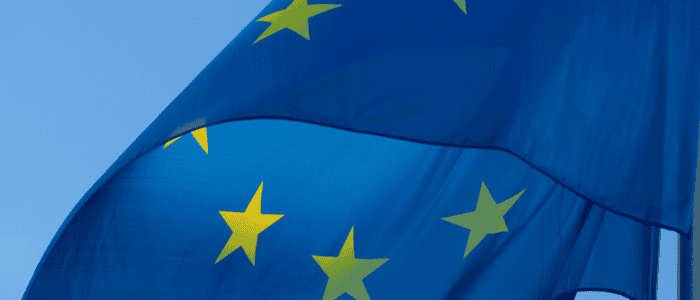Published
Europe’s Naivety and Strategic Autonomy
By: Oscar Guinea
Subjects: European Union WTO and Globalisation

The EU doesn’t want to be the battle ground for the trade and technological war between China and the US. Trapped between these two powers, Europe feels as dependent on US big-tech as it claims to be on Chinese manufacturing. But the EU isn’t naïve and has the capacity to carve its own path. Such a process was started on the 1st of October when the European Council laid out the broad guidelines of Europe’s strategic autonomy – a phrase which comprises the policies that the EU would pursue to become less dependent on foreign technology and products.
But is it the EU as dependent as it sees itself to be? The answer is no.
After decades of trade openness, gaining experience as a region that has worked to maintain and broaden its ability to trade, the EU has become a regulatory superpower. Many of the directives approved in Brussels are also implemented outside the EU. Anu Bradford describes this phenomenon as the “Brussels Effect”. The Brussels Effect has developed out of the need, from non-EU businesses, to adopt EU standards in order to sell their products in the EU. Having born these costs, these businesses will lobby their countries to adopt similar rules to those followed in the EU to avoid being disadvantaged in their national markets. In this way, EU regulations become global norms. Ultimately, EU companies benefit from the Brussels Effect as they can export their products to other markets without having to adjust them to other standards.
The EU is not more dependent on the rest of the world than other countries. The truth is that EU countries sell and buy most goods and services between themselves. Intra-EU imports are 1.6 times larger than what EU countries import from outside the EU. The same happens with medical goods: more than 60% of the 118 products that Eurostat classified as related to covid-19 were imported from within the EU.
And while it’s also true that, during the first months of the pandemic, many EU countries suffered shortages of medical goods, these shortages were felt worldwide, including in China.
With the aim of building this strategic autonomy, the European Council tasked the European Commission to design policies that increase production of medical goods within the EU. However, in a crisis like covid-19, self-sufficiency is not the answer. If we have learned anything from this crisis it is that it affects many countries simultaneously. In the case of covid-19, China was first, followed by other Asian countries, and later the EU and the US. The good news was that when Europe’s factories were closed, the EU could buy the products it needed from abroad. For example, extra-EU imports of hydroalcoholic liquid – the liquid that we all used regularly to disinfect our hands – grew by 100 million euros during the first four months of 2020 as compared with the same period of 2019.
Despite this, many would argue that re-location of vital products like medical goods is needed because EU citizens cannot be dependent on foreign governments which may not follow the same contractual rules as EU countries do. Yet, we must remember that, for a brief period, it was France and Germany who forbade the selling of medical goods to other EU countries.
If the next crisis is another “every man for himself” scenario, the logic of self-sufficiency will be applied nationally, making another painful crack in the EU singe market.
Furthermore, the EU does not have a monopoly on strategic autonomy. If other countries promote similar policies, trade in medical goods will be hampered. The most disadvantaged businesses in any global trend of self-sufficiency in medical goods would be EU firms, which are the largest exporters of these products.
The EU doesn’t need to choose between strategic autonomy and openness. It has the economic and political weight to defend its own commercial interests and enforce its rules. And for that reason, strategic autonomy doesn’t need to result in increased protectionism. Quite the opposite. In a polarised world, where the US and China prioritise their own economies, the EU can consolidate its role as a regulatory super power and diversify its imports if it remains open. After decades of openness, which have benefited European citizens and businesses, Europe must defend that being open doesn’t mean being dependent, and that cooperation, rather than protectionism, is the best ally to prosperity.
This text is based on an article published in EL País (in Spanish) by the same author.
If you are interested on this topic please check our ECIPE paper Globalisation Comes to the Rescue. How Dependency Makes Us More Resilient.